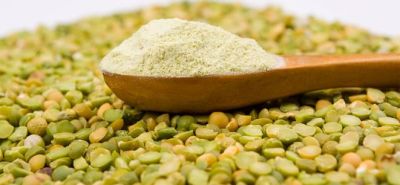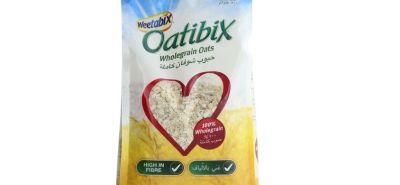What are The Benefits of L-Carnitine Supplementation?
Last Updated on May 10, 2024
L-CARNITINE: BURNS BODY FAT, BOOSTS RECOVERY, REDUCES MUSCLE SORENESS & PROTECTS THE HEART.
Besides playing a role in fat burning, in three separate studies L-Carnitine showed significantly less post-exercise stress, including less formation of free radicals, and less tissue damage & muscle soreness after exercise in a variety of ages.
By Jeff S. Volek, Ph.D., R.D. – Associate Professor at the University of Connecticut
L-Carnitine (carnitine) is an essential, non-toxic, natural nutrient that helps burn fat for fuel. Because deficiencies have been linked to a profound impairment of muscle function, there has been great interest in studying carnitine supplementation. Over the past decade, my research, as well as countless others, has shed light on carnitine’s role in metabolism, performance and overall health.
Carnitine Burns Body Fat
Carnitine has an essential role in transporting fat into mitochondria (the furnace of the cell). Therefore, carnitine has been marketed as a fat burning supplement.
In two separate studies performed 10 years ago, supplementation of carnitine (3g per day) for 10 days resulted in significantly higher rates of fat oxidation.
This work was recently validated by researchers in the United Kingdom who studied two groups of healthy endurance-trained men.
The control group drank an 80g carbohydrate-only beverage two times per day for 24 weeks. The test group received 2g of L-Carnitine (in the form of L-Carnitine L-Tartrate) with their 80g carb beverage for the same dosage period.
In the L-Carnitine group, resting muscle carnitine was unchanged after 12 weeks, but increased by 21% after 24 weeks.
When the L-Carnitine group exercised at a low intensity after 24 weeks of supplementation, they showed that the higher muscle carnitine was linked to significant muscle glycogen sparing (55% better) compared to the control group. Also, work output was 35% greater than the control group.
Carnitine Boosts Recovery
Although more than 95% of the body’s total carnitine pool resides in skeletal muscle, several lines of evidence support a role of carnitine in other processes beyond fat burning.
Building on my laboratory’s prior work that showed carnitine had antioxidant and vasoactive (promotes dilation) effects, we focused our research on the role of carnitine in boosting recovery after exercise.
Study 1
In our first study, we reported that healthy men who supplemented with carnitine (2g per day for 3 weeks) showed significantly less accumulation of markers of post-exercise stress, including less formation of free radicals, and less tissue damage and muscle soreness after moderate intensity squat exercises.
Study 2
We performed a follow-up study to validate those findings and determine if ingesting a smaller dose of carnitine could produce the same effects. Healthy men performed a resistance exercise challenge that included five sets of squat exercise on three separate occasions. For three weeks prior to each test, subjects ingested either 1g of L-Carnitine per day, 2g per day or a placebo.
Similar to our previous work, we showed that carnitine supplementation was effective at reducing the acute response of several markers of biochemical stress after resistance exercise. In addition, perception of muscle soreness was lower after exercise with carnitine supplementation.
The surprising finding was that 1g of L-Carnitine per day was as effective as 2g per day.
Study 3
We conducted a third experiment to see if the beneficial effects of carnitine on recovery from exercise would be evident in a group of baby boomers, aged 40 to 65. We used a similar methodology and dosage of carnitine (2g per day).
Similar to the previous two studies, we validated that carnitine supplementation beneficially affects post-exercise markers of metabolic stress, muscle disruption, and muscle soreness in middle-age men and women.
Carnitine May Lower Risk of Heart Disease By Improving Dilation
Previous work in animals, and various clinical models of vascular disease in people, indicated that carnitine had vasoactive effects, improving the ability of blood vessels to dilate. We therefore set out to examine the effects of carnitine supplementation on flow-mediated dilation of the brachial artery as a measure of vascular health.
Healthy subjects consumed a high fat meal, which has been shown to cause impairment of vascular health. We demonstrated that 2g of L-Carnitine taken with the meal enhanced vascular responses (increased dilation) to the high fat meal. This was most apparent in those subjects who had the greatest decrease in vascular function. Because vascular dysfunction is an early event in heart disease, carnitine supplementation can be viewed as a preventative or therapeutic supplement to improve risk for heart disease.
How Much To Take
In addition to potentially enhancing fat burning at rest and during exercise, carnitine supplementation may offer additional benefits.
The latest studies indicate better recovery from exercise, decreased exercise-induced muscle damage, decreased muscle soreness, increased antioxidant effects, and improved vascular function. The most effective dose is 1-2g per day.
Carnitine can be purchased in various forms including L-Carnitine L-Tartrate, L-Carnitine (free form), and Acetyl-L-Carnitine. All forms can deliver adequate amounts of carnitine to the blood.
For cognition benefits, the Acetyl L-Carnitine form is typically used since it can be transported more easily to the brain. The studies discussed here all focused on muscle and vascular tissue, and used the L-Carnitine L-Tartrate form.
The Best Time To Consume
Taking L-carnitine about 30 minutes to an hour before exercise may optimize its fat-burning potential during the workout.
Recommended L-Carnitine Supplements







Leave a Reply